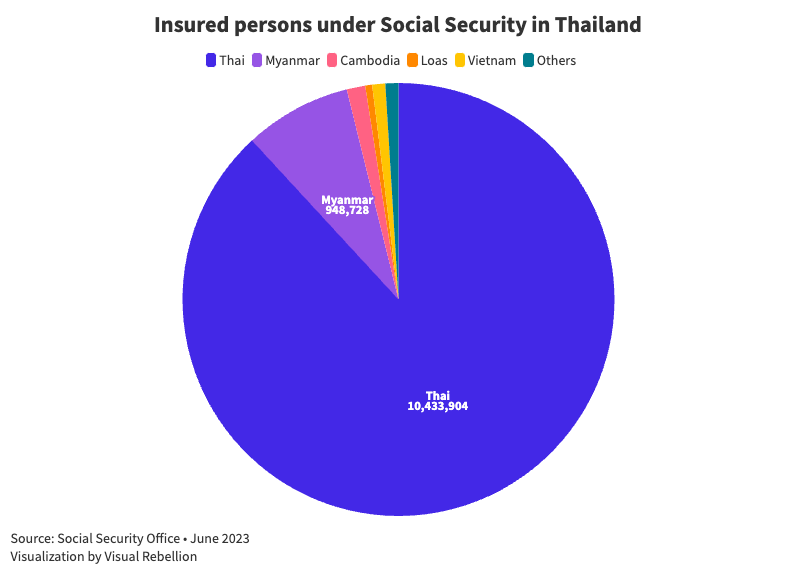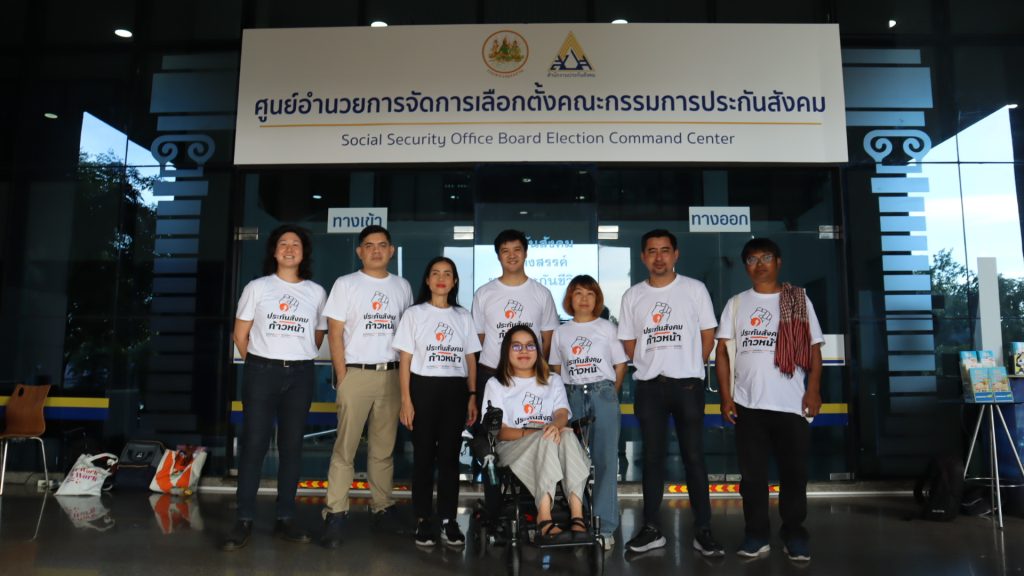Myanmar migrant workers in Thailand not invited to first social security board election
By Nicha Wachpanich / Visual Rebellion
BANGKOK // On December 24th, Thailand will host its first social security board election. Close to one million workers from Myanmar, who contribute equally to this multi-million dollar fund, are not allowed to participate. A Thai migrant worker rights advocate is running to represent Myanmar nationals.
The upcoming social security board election is a historical landmark for labor rights as it is the first time workers are given the opportunity to directly vote for their representatives in three decades.
The tripartite board will comprise 21 members – state authorities, employers and workers will each be allocated seven seats. The board will oversee the benefits of 23 million workers and the 2,445,679 million THB ($68 million USD) fund by providing advice and monitoring the use of the budget.
Most migrant workers in Thailand – except for those working in informal sectors such as some parts of the fishing and agriculture industries as well as housekeeping – are required to have social security and contribute at the same rate as workers holding Thai citizenship.
The monthly minimum contribution is 83 THB and not exceeding 750 THB ($2-21 USD), according to your income. The amount is deducted and put into the national fund, whose total budget is complemented by the government and the employers.
Non-Thai insured persons are entitled to the same set of benefits, ranging from healthcare costs, compensation fee during maternity leave to a six-months financial support when being unemployed.
However, 1.2 million non-Thai insured persons (11%), including 948,728 workers from Myanmar, cannot vote nor run as candidates for the board, as the first requirement for both rights is to be a Thai citizen.
“The election should allow migrant workers to vote because everyone is an equally insured person. We contribute the same amount to the fund. The only difference is the nationality,” said Khaingmin Lwin, a Myanmar worker in Thailand.
He thinks the way social security is now being handled needs to change. “For migrant workers, it is a system that easily deducts money, but hardly gives access to benefits.”

Non-Thai insured persons face a lot of difficulty to access the benefits they are entitled to, due partly to language barriers. In October 2023, eight Burmese garment factory workers in Samut Prakan, an industrial area in the east of Bangkok, were denied their full wages for unemployment which they should have received by the provincial officers.
Sirirat Wankam is a Thai working in the same factory and the president of The Workers Union of Spinning & Weaving Industries of Thailand. She helped her eight colleagues to claim their rights. Some of her Thai peers think that matters of policy making should remain in the hands of Thai citizens only, arguing that migrant workers would soon return to their home country and should not interfere in national decision mechanisms. But Sirirat thinks that having migrants in the Social Security board would be the way to better represent their concerns.
Non-Thai insured persons tend to miss the full coverage of social security due to unsynchronised labor-related policies. When they have to return to their home country to renew their visas, the social security board sometimes fails to coordinate their new working period with their previous contracts.
“There are still many biases hidden in social security fund management and many benefits do not represent non-Thai insured person’s rights,” said Siwawong Sooktawee, project consultant for the advocacy network Migrant Working Group (MWG).
Siwawong is running for a seat in the board, along with seven other Thai human rights advocates, including an activist representing people with disabilities.
To many Thais, this poll, which gathers the largest number of voters only second to the general election, is another way to oppose the military’s grip on national politics. The current social security board was appointed by the military junta, led by General Prayut Chan-ocha, nine years ago.

The change will be slow. Only 945,609 of insured workers registered for the election, making up 4.11% of the total insured persons.
Siwawong hopes to win the election on behalf of non-Thai insured persons and to enter the board to make changes.
“What we want the most is an election in which every insured person has equal rights.”
This story was first published on DVB English.